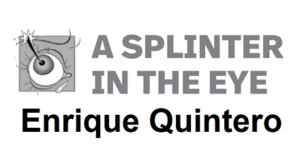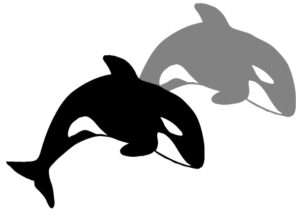 Chile rejects a new constitution
Chile rejects a new constitution
The monsters of transitional times
The most dangerous times on an airplane are take-off and landing. These are transitional times between two conditions that are not clearly defined. In the first case, the mass of the plane is yet to be airborne, and in the second case, a mass that is elevated in the atmosphere needs to come down.
Statistically, these two times are more dangerous than any other part of the flight because in both instances, according to a Boeing research report, pilots have less time to react to problems and “they are on or close to the ground and moving quickly.”
Similarly, in human societies, transitional times are both critical and precarious. Social contradictions become more acute, and political reality becomes more hazardous and more difficult to read. Because a clear resolution has not yet come into being, there is always the possibility that something may go wrong. In the words of the Italian Marxist Antonio Gramsci: “The old world is dying, and the new world struggles to be born: now is the time of monsters.”
In modern times, perhaps no other country has experienced the tension between the old and the new, and the monsters created by these social transitions, as Chile. Contrast the victory in 1970 of democratically elected socialist Marxist Salvador Allende with the 16-year regime of fascism and neo-liberalism under Pinochet that began in 1973.
Pinochet’s regime ended by Referendum in 1988 but Chile’s political life was shaped by a constitution that maintained the political and economic framework developed during the Pinochet regime. This situation ultimately led to huge popular protests in 2019-20 against the cost of living, inequality, and privatization of the national economy.
In 2021, leftist candidate 35-year old Gabriel Boric was elected president by an overwhelming 61% of the voters. Then, in 2022, to the surprise of many, 67% of voters rejected a new constitution meant to bring radical change and final, formal end to the Pinochet era.
The dangers of transitional times
How can we explain this reversal in public opinion? Following Gramsci, we could rightly say that the old Chile is dying but the new Chile still struggles to be born. This transitional process has made possible the “revival of Pinochet” and other monsters, as noted by the new Colombian president Gustavo Petro. Without any doubt, the rejection of the New Constitution represents a significant defeat for the Chilean left, and for progressive people and Marxists around the world.
Within this context, it is worth remembering that a month before the referendum a group of over two-hundred world leaders and well-known figures, among them Noam Chomsky and Jeremy Corbyn, former leader of the Labour Party and current member of the British Parliament, wrote an open letter to the Chilean people asking them to approve the New Constitution.
According to them, the new charter outlined the path needed to address the crises affecting most societies around the world, e.g. protecting the rights of nature, reducing social inequity, supporting gender equity, and providing access to abortion. The New Constitution stipulated the right to public and universal health, free education at all levels, better retirement plans, and access to housing and water. It also protects the rights of indigenous peoples and, given their presence, recognizes the multi-national character of the state.
The monsters of capitalist reason
The motto on the current Chilean coat of arms, established in 1920, reads ominously: “By Reason or By Force.” It is well known that in any given society, generally those who have the monopoly of force end up imposing their reason. Chile is no exception. Throughout its history as a nation, beginning in the early 1800’s, the social classes in control of the economic, political, and military force have indeed imposed their will and modes of thinking upon the population.
The most infamous example was the coup-d’état in 1973 against Salvador Allende, jointly sponsored by the Chilean bourgeoisie, the conservative parties, the church, the military and the CIA. The coup took place on September 11 and left more than 4000 dead or missing, and forced hundreds of thousands into exile.
Needless to say, here in the US, we don’t hear much about that particular September 11 in which our government played the role of the terrorist by participating in the planning of the attack to the Presidential Palace (La Moneda), as well as in acts of torture, murder and “disappearance.”
Christopher Hitchens’ 2001 book, The Trial of Henry Kissinger, describes how these criminal actions were justified by our government as being in alignment with the interests of the US foreign policy and US corporations in Chile at the time (ITT, Pepsi Cola, and the Chase Manhattan Bank). In other words, the rationality of capital prevailed by force over democracy, confirming the Spanish painter Francisco de Goya’s 1797 observation that “the dreams of reason can produce monsters.”
Mistakes of the Chilean Left
During a recent visit to Latin America, I had the opportunity to talk to numerous Marxists and left-wing militants for whom political engagement has been a central component of their lives. Although they hold a variety of ideological positions within the spectrum of the Marxist left, their opinions converged in one single point: Boric’s government overestimated the popular support for his administration based on the results of the election that brought him to the presidency.
This in turn generated a somewhat delusional “political overconfidence” which lead them to organize the process approving the new constitution in a bureaucratic fashion (top-to-bottom), rather than through a “grass-roots” movement that would have reflected and amplified the constitution’s agenda.
This separation from the masses was aggravated by timid policies during the first months of the new administration which showed no immediate commitment to popular social aspirations. More damaging, the initial overconfidence lead to an underestimation of the power of the political and ideological arsenal of the Chilean right and its allies abroad. They unleashed a vicious political warfare through a powerful mediatic campaign loaded with misinformation, fake news, propagation of social uncertainty, and fear—the same tactics used by the American right and the Republican Party and their Brazilian teammate, Jair Bolsonaro.
History is not predetermined
History is not just a book to be read but also one to be written. As such, history has no pre-established script or agenda to follow. On the contrary, it is humanity who forges, forms, molds, and conceives the different types of social organizations which in turn condition the ways in which we conduct our lives, our relations with others, our relations with nature, and our views of the future.
A panoramic view of international politics—particularly of Europe and the United States—may suggest that the world is turning more and more to the right. On the other hand, the growing popular discontent against the war in Ukraine, the movement of poor nations against climate change and its main culprits in preparation for COP27 in Egypt, even the current efforts by the Boric administration to figure out how to not use “the master’s tools to dismantle the master’s house,” and last but not least, the recent victory of Lula in Brazil against the neo-fascist Bolsonaro, may suggest just the opposite.
Fascism does have a future, but so does Socialism and the possibility of a better world. What happens next is not yet written. It is up to our efforts and struggle to determine the content of the text written in the upcoming pages of history. These are transitional times.
Enrique Quintero is a member of WIP’s Publishing Committee.

Be First to Comment